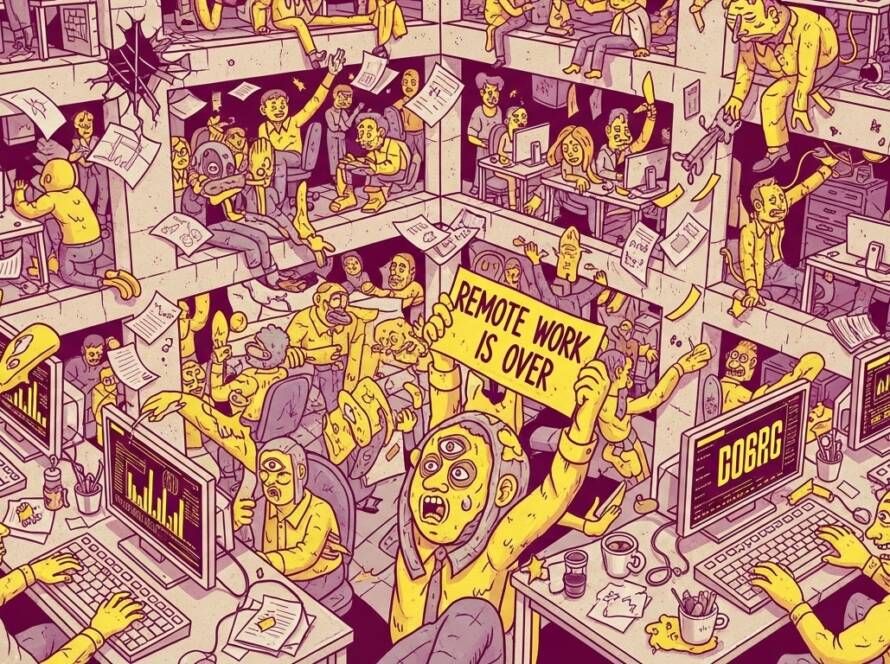Navigating Life with a Dishonest Manager
Ah, the workplace. A place where dreams are made, coffee is consumed in copious amounts, and sometimes, you find yourself under the thumb of a manager who could give a used car salesman a run for their money. If you’ve ever suspected that your boss might be a liar or a cheat, you’re not alone. Let’s dive into the world of workplace dishonesty with a sprinkle of humor and a dash of humanity.
Identifying a Liar and a Cheat
So, how do you know if your manager is a liar? It’s not like they come with a neon sign that says, “Warning: Professional Deceiver.” Here are some classic red flags:
-
Inconsistencies: If your manager’s stories change more often than your coffee order, it’s time to raise an eyebrow. One day, the project is “on track,” and the next, it’s “a minor setback.” Spoiler alert: it’s probably not minor.
-
Lack of Transparency: If your manager treats information like it’s a state secret, you might be dealing with a cheat. They might say, “Trust me,” but you’re left wondering if you should trust them with your lunch order, let alone your career.
-
Taking Credit: If your manager is suddenly the star of the show during presentations, and you’re left in the shadows, it’s time to channel your inner Sherlock Holmes. Did they just present your brilliant idea as their own? Elementary, my dear Watson.
Impact on Employees and the Organization
Having a dishonest manager is like working in a haunted house—there’s a constant feeling of unease. Employees often feel demoralized, and trust evaporates faster than the office coffee. You might find yourself questioning your own work ethic, wondering if you should start practicing your poker face for the next team meeting.
The organization suffers too. When dishonesty prevails, productivity declines, and employee turnover increases. It’s like a game of musical chairs, but instead of music, you hear the sound of resignation and early retirement letters being typed.
Strategies for Employees
So, what can you do if you find yourself under the thumb of a dishonest manager? Here are some strategies that might help:
-
Document Everything: Keep a record of conversations, decisions, and any suspicious behavior. Think of it as your personal “Liar, Liar” dossier. You never know when you might need to pull it out like a secret weapon.
-
Seek Support: Talk to trusted colleagues. You’re not alone in this. If they’re also feeling the heat, it’s time to form a support group—preferably one that meets over happy hour.
-
Maintain Professionalism: It’s tempting to unleash your inner drama queen, but try to keep it together. Focus on your work and maintain your integrity. After all, you don’t want to become the villain in this story; remember, you are dealing with a deceiving individual.
When to Escalate
If things become dire, it may be time to escalate the issue. You can approach HR with your documented evidence and a calm demeanor. Remember, you’re not there to play the blame game; you’re there to seek a resolution. Think of it as a diplomatic mission rather than a courtroom drama.
Fostering a Culture of Honesty
Organizations can also do their part. Creating a culture of honesty starts at the top. Leaders should model integrity and encourage open communication. Regular training on ethical behavior can help employees feel empowered to speak up when they see something fishy.
And let’s be honest—nobody wants to work in a place where dishonesty is the norm. It’s like trying to enjoy a meal at a restaurant with a health code violation. No thanks!
Conclusion
Navigating the waters of workplace dishonesty can be tricky, but with a bit of humor and a lot of integrity, you can find your way. Remember, you’re not just a pawn in someone else’s game; you have the power to stand up for what’s right. So, keep your chin up, document those shenanigans, and don’t let a dishonest manager dim your shine. After all, the workplace is challenging enough without adding a liar to the mix!
Have you had any experiences with a dishonest manager? Share your stories—let’s commiserate together!
Disclaimer:
The information provided in this blog is for informational purposes only and should not be considered professional advice. While we strive to provide accurate and up-to-date information, we make no guarantees about the completeness or reliability of the content. Any actions you take based on the information in this blog are at your own risk. Additionally, this blog may contain affiliate links, and we may earn a commission from purchases made through those links.



